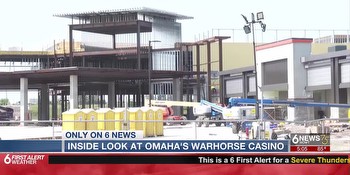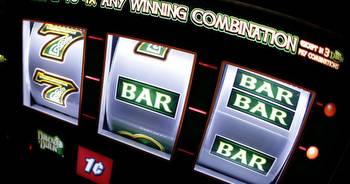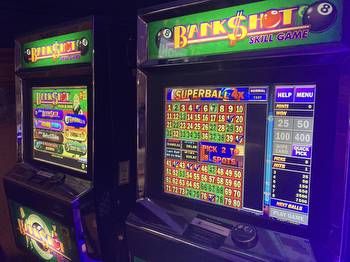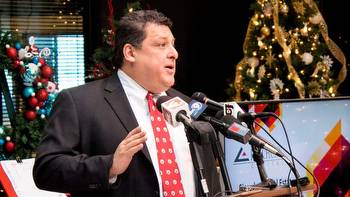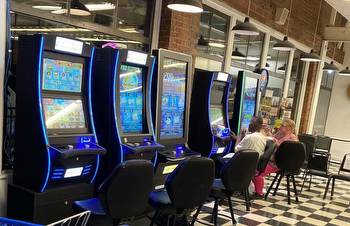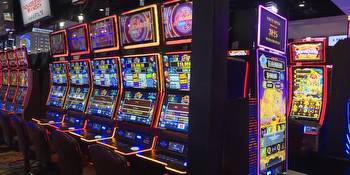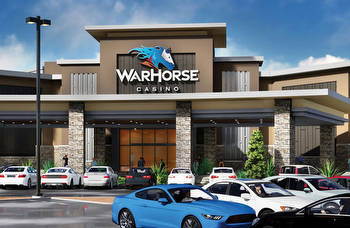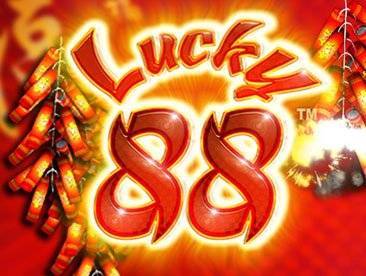Nebraska senator targets ‘skill games’ for taxation, additional property tax relief
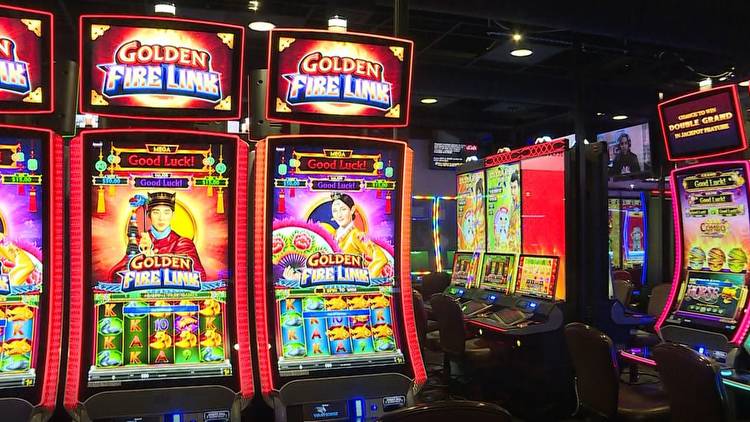
LINCOLN, Neb. (Nebraska Examiner) - “Win Big Money” and “Win $15,000 Today” read the signs at a small outlet at a strip mall in Kearney, Nebraska.
One wall of the mostly barren shop is lined with video machines that are a dead ringer for slot machines that are now being played at Nebraska’s first legal casinos in Lincoln and Grand Island.
This Kearney spot is not a gambling casino but a skill games “casino,” holding machines that the Nebraska Supreme Court ruled in 2011 were legal because they require some skill to win, unlike slot machines (illegal at that time), which are games based on chance.
The number of such skill games have more than doubled across Nebraska in recent years, jumping from 1,577 in 2018 to 3,878 in November, according to Nebraska Department of Revenue data.
A national issue
They’ve been in bars and restaurants for years but now are becoming fixtures in convenience stores and supermarkets, and, as in Kearney, in stand-alone skill game casinos.
It’s part of a national trend that has grown to an estimated $109 billion a year in play on skill games and $27 billion in revenue, according to the American Gaming Association, a casino-backed trade group.
The Gaming Association recently asked the U.S. Department of Justice to intervene and require skill games to be regulated as gambling devices, the Wall Street Journal reported last month.
Property tax relief
In Nebraska, a state senator, along with the operator of Lincoln’s WarHorse casino, are now targeting skill games to pay the same taxes as slot machines and to begin contributing to lowering property taxes, as slot machines do.
State Sen. Tom Briese of Albion, who has made property tax relief a top priority, said he will introduce a bill in the Legislature this year to tax skill games at the same rate as slot machines — 20% of net revenue — and to use that revenue for property tax credits.
“As a property tax relief proponent, I see these machines as another revenue source,” he said. “If they’re going to be out there, they need to be taxed.”
Lance Morgan, president CEO of Ho-Chunk Inc., the operators of WarHorse Casino in Lincoln, said it galls him that his organization had to pay $5 million for a state casino license that allowed him to install slot machines, yet a business can install a skill machine by purchasing a $250 state sticker.
Currently, there are more skill games in Lancaster County (568) than slot machines at the WarHorse Casino (430). If you get tired of playing the casino’s slot machines, you can walk across the street to a new U-Stop convenience store that has a handful of skill games in a section of the store.
Part of the pitch to voters, who approved casino gaming last year, was that a portion of the revenue from casinos and slot machines would go to property tax relief — perhaps as much as $90 million to $100 million once six casinos are open.
Taxing skill games might increase that by another $20 million, according to one rough estimate by Ho-Chunk Inc.
‘Wild west’ out there
Morgan also thinks skill games need more vigorous inspections and oversight, as is required of his slot machines.
One of his employees, Rachael Johnson, recently toured the state to learn more about the state of skill games. Johnson said she found minors playing one machine, a sign declaring that winners had to call a phone number to claim their prize and a sign that stated winnings must be shared with store employees.
“It’s like the Wild West out there,” Morgan said, with skill games on nearly every street corner — something gambling opponents always feared.
“I don’t understand why the previous administration, which was so anti-gambling, let them proliferate. Now they can’t take them away,” he added, referring to just-departed Gov. Pete Ricketts, who opposed the casino gambling ballot measure.
Charities, businesses oppose tax
Any proposal to tax skill games is expected to see strong opposition from the businesses and charities that own, and profit from, the games.
Jim Ritzman of the Sowers Club of Lincoln said a 20% tax would probably end the club’s venture with skill games.
The club, Ritzman said, makes about $75,000 a year from the 10-12 skill games it installs in Lincoln sports bars. Proceeds are used for youth activities and for college scholarships, he said.
‘Would kill us’
“It’s like they’re going after people who give away money,” Ritzman said. “Our proceeds all go back into the community. It would kill us.”
In addition, some small businesses who install their own skill games, including those in small towns, maintain that revenue from the machines helps them keep the doors open.
Both Ritzman and Kent Rogert, a lobbyist who represents a skill game distributor, said comparing skill games to slot machines is like comparing apples to oranges.
For one thing, Rogert said, some skill game players are good enough to regularly beat the machines, winning more money than they put in.
Skill game critics dispute that and maintain that little “skill” is required to play the game and that there’s little difference between them and slot machines.
‘No way to take them away’
David Geier, who heads the Nebraska Gamblers Assistance Program, which provides counseling for problem gamblers, said skill games are a very addictive form of gaming. The largest percentage of calls for help to the state program are from skill game players, he said.
“You can play them as fast as you can put money into them,” Geier said, and most skill game players play them frequently, which is a hallmark of problem gambling.
The explosive growth in the number of machines, he said, has added another problem.
“There’s no way to take them away now,” Geier said.
Nebraska Examiner is part of States Newsroom, a network of news bureaus supported by grants and a coalition of donors as a 501c(3) public charity. Nebraska Examiner maintains editorial independence. Contact Editor Cate Folsom for questions: info@nebraskaexaminer.com. Follow Nebraska Examiner on and .








